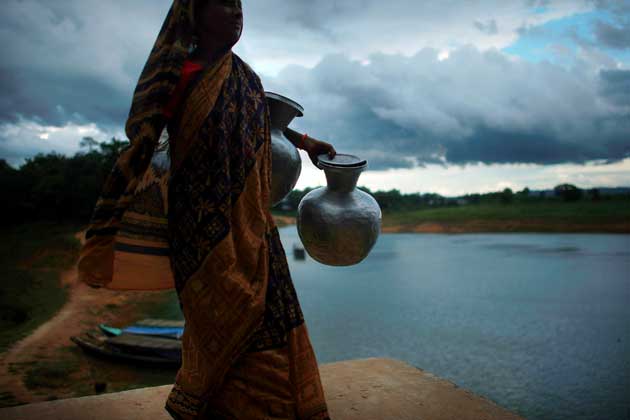Bangladesh is 'safe haven for British Islamic terrorists'
Increasing surveillance in Pakistan has prompted fundamentalists to seek new hideaways for training

Your support helps us to tell the story
From reproductive rights to climate change to Big Tech, The Independent is on the ground when the story is developing. Whether it's investigating the financials of Elon Musk's pro-Trump PAC or producing our latest documentary, 'The A Word', which shines a light on the American women fighting for reproductive rights, we know how important it is to parse out the facts from the messaging.
At such a critical moment in US history, we need reporters on the ground. Your donation allows us to keep sending journalists to speak to both sides of the story.
The Independent is trusted by Americans across the entire political spectrum. And unlike many other quality news outlets, we choose not to lock Americans out of our reporting and analysis with paywalls. We believe quality journalism should be available to everyone, paid for by those who can afford it.
Your support makes all the difference.Security experts have warned that extremists training in Bangladesh could pose a major threat to Britain, adding that the south-Asian country has become a "safe haven" for terrorists.
Rising numbers of British-born fundamentalists are travelling to Bangladesh (formerly East Pakistan) for jihadist training, prompting the Bangladeshi government to launch a database to monitor the movements of suspected terrorists.
UK security services are also turning their attention to the country, fearing it may become a magnet for would-be terrorists as security forces ratchet up surveillance on Pakistan. More than 4,000 British Muslims are thought to have travelled to Pakistan and Afghanistan for military training.
Senior Bangladeshi intelligence sources, speaking on condition of anonymity, said they were keen to crack down on growing fundamentalist activity. But they admitted that lack of technology limits the means they have to monitor suspected extremists.
One source said the country is attempting to create a system to monitor potential terrorists arriving by air, and to secure its borders. He revealed that the Chittagong Hill Tracts in the south, and the land along the Indian border in east Bangladesh, including around the town of Sylhet – the home of many Bangladeshi British expats – were being investigated as possible bases for jihadist training camps.
UK security sources confirmed they stepped up surveillance of Bangladesh after seeing spikes in travel to the country. These corresponded to UK terror plots being foiled – as when 12 suspects were arrested in the north-west of England in April, when scrutiny of travel to Pakistan was at its most intense.
The sources also found that British Muslim extremists travelling to Bangladesh often have links to Asia, and travel into the country via third countries, such as South Africa and Sri Lanka.
Bangladesh is setting up anti-terror joint working groups with countries including Britain and the US. This follows the visit to Bangladesh by the Home Secretary, Jacqui Smith, in April last year, to discuss ways the two countries could work together.
Police stepped up security in the country's capital, Dhaka, at the beginning of the month after the British High Commission was one of four foreign missions to receive threats from a group calling itself Jemaah Islamiya al-Qa'ida.
The head of a British-based charity, Green Crescent, was arrested in Bangladesh this month after bomb-making equipment was found at a school run by the group. British-born Bangladeshi Faisal Mostafa, 45, has twice been acquitted of charges of conspiracy to cause explosions, and was given a suspended sentence last year for boarding a plane with a pistol in his suitcase.
"People are now looking to Bangladesh as a potential safe haven. For a safe haven to work you need a passport you can travel on, material, and access to individuals," said Andrew Black, of intelligence and security-services firm Black Watch Global. "Bangladesh, and other countries, need to develop the systems to track and identify individuals moving in and out of the country. These systems are crucial. Jihadist strategists are thinking of new ways to transfer the knowledge, through the internet or through human training, so tracking is going to have to change too."
Join our commenting forum
Join thought-provoking conversations, follow other Independent readers and see their replies
Comments